Category: Empathy

In Episode 101, Rhonda V. Magee, Professor of Law at the University of San Francisco, joins Melinda in a conversation about the practice of mindfulness as a way to build sustainability into allyship and empathy. They look into ways we can deepen our mindfulness to support ourselves through healing intergenerational trauma. They explore how to be better allies by learning to stay open to making mistakes and being corrected when our actions cause harm to others. They also talk about how leaders and managers can help teams develop mindfulness practices to make everyone feel more included.
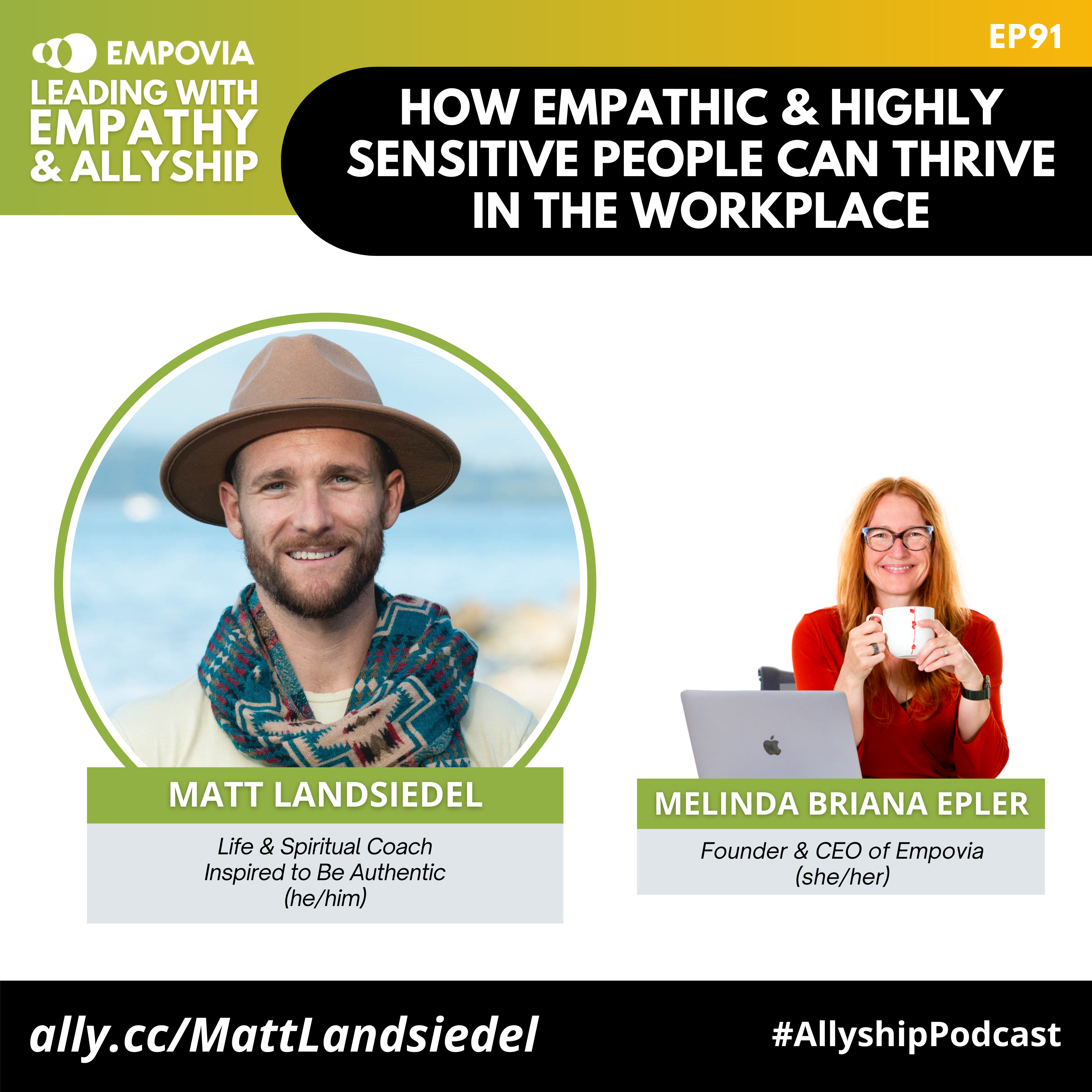
In Episode 91, Melinda speaks with Matt Landsiedel, Life & Spiritual Coach at Inspired to Be Authentic, about how empathic and highly sensitive people (HSPs) can thrive in the workplace and become some of our strongest leaders. They explore what being “highly sensitive” means, how we can identify individuals with this personality trait, and where there are overlapping characteristics between HSPs and empaths. They also discuss ways for HSPs to support themselves through healing past trauma to become their most authentic selves, and they provide simple approaches for managers to support a highly sensitive team member’s valuable contributions and emotional well-being.
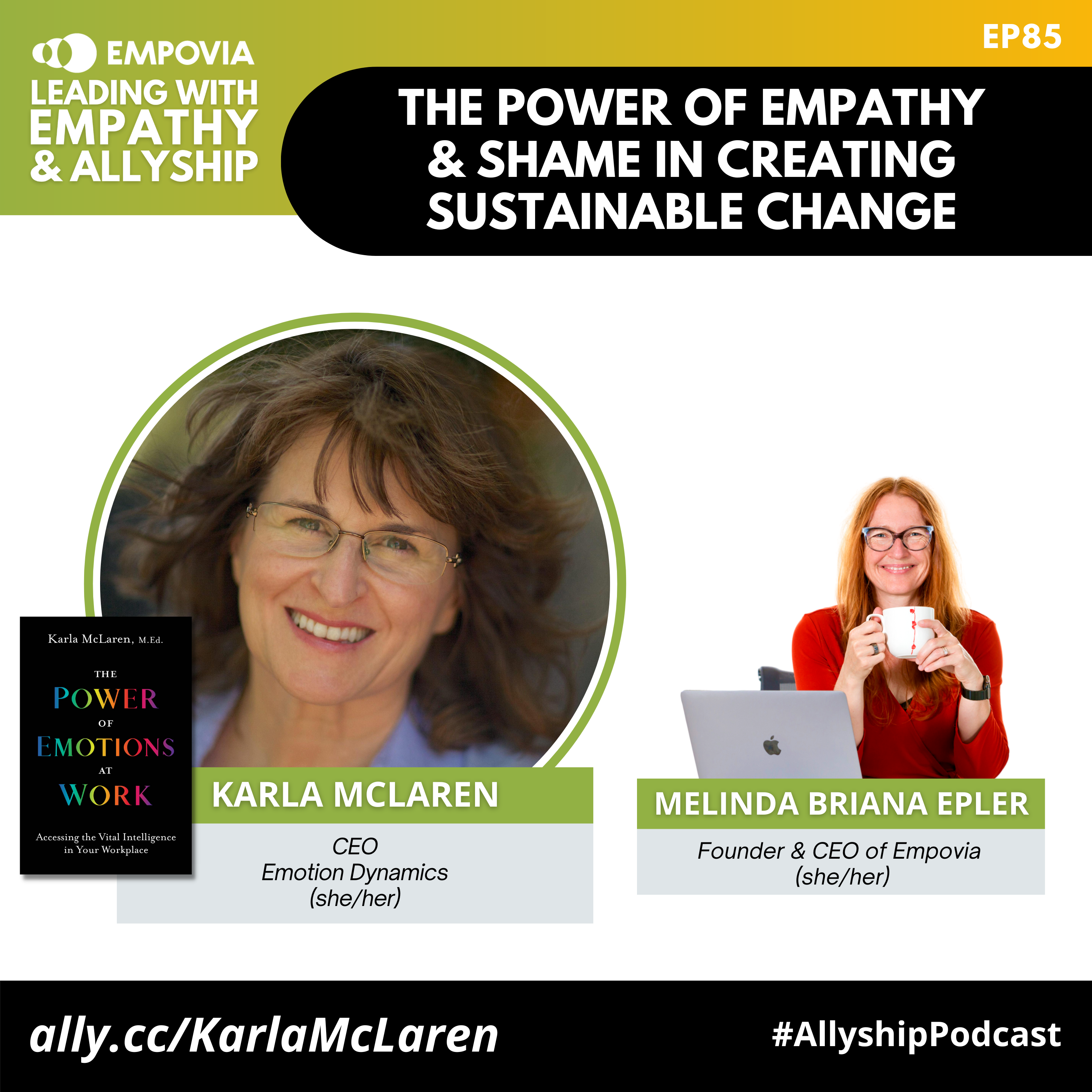
In Episode 85, Karla McLaren, CEO of Emotion Dynamics, dives into a conversation with Melinda about how we can approach empathy and shame as a way to create sustainable change in communities and workplaces. They talk about ways to support ourselves through compassion fatigue, which often comes from doing tremendous amounts of emotional labor, emotion work, and empathy work. Karla also shares what organizations can do to protect the well-being of workers engaged in empathy work, such as setting up ‘repair stations’ and developing emotionally well-regulated social structures in the workplace.
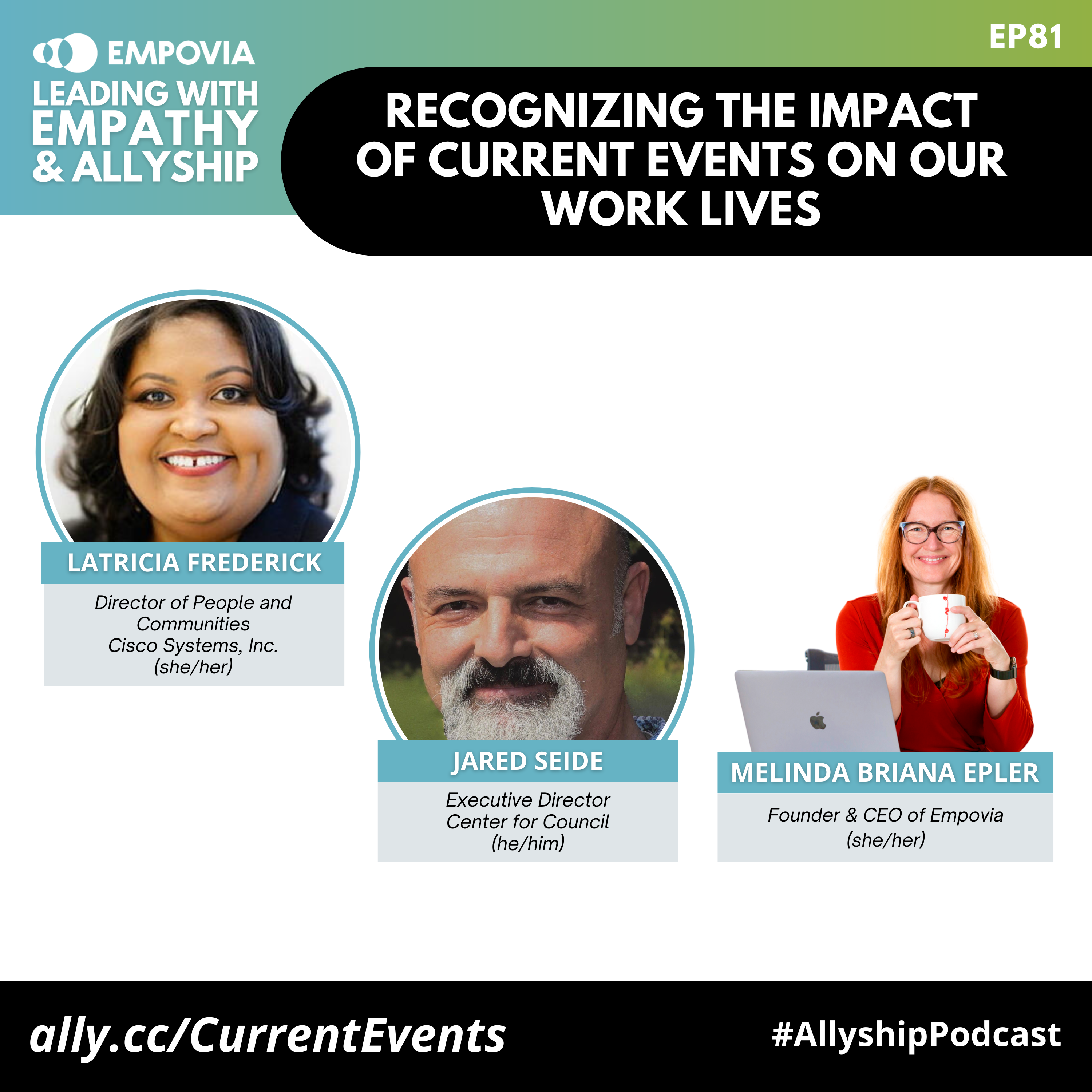
In Episode 81, Melinda is joined by leadership and management experts LaTricia Frederick and Jared Seide in a live recording. They discuss important ways for us to recognize, as well as protect our well-being from, the impact of current events on our work lives. They also dive into how managers, companies, and allies can take part in creating safe, compassionate spaces for addressing our experiences—whether it be through showing support, harnessing the power of vulnerability, or sharing stories.
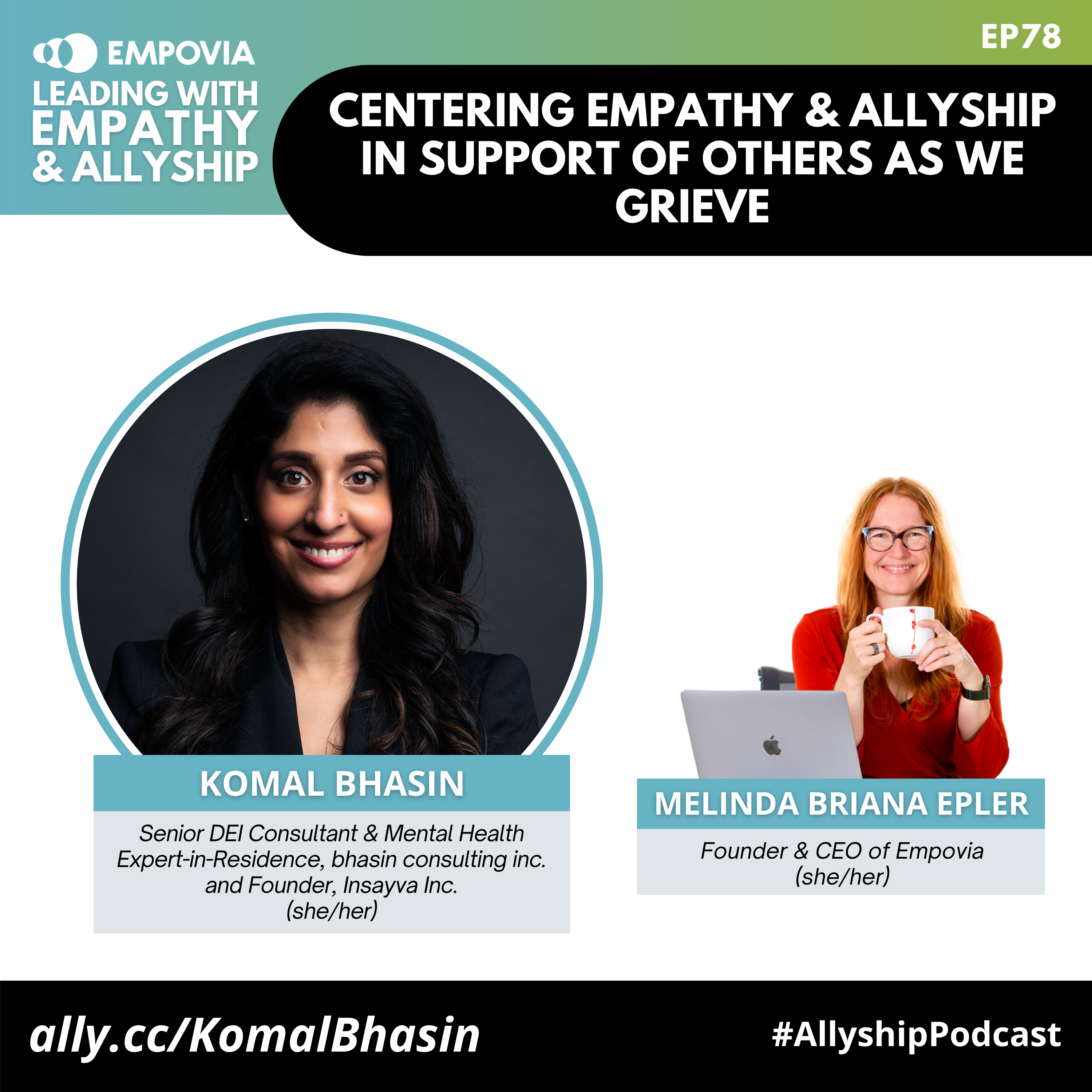
In Episode 78, Dr. Komal Bhasin, Senior DEI Consultant & Mental Health Expert-in-Residence at bhasin consulting inc. and Founder at Insayva Inc., joins Melinda in a conversation about centering empathy and allyship in communities impacted by injustice during times of crisis, pain, and tragedy.
Komal explains how individuals and organizations alike can learn the skill of empathy according to science. She recommends practical ways to drive inclusion and build psychological safety at work by creating an environment where managers recognize and address marginalizing behaviors. Throughout the episode, she shares how we can use our power, resources, and privilege to impactfully support others even when we experience marginalization ourselves.
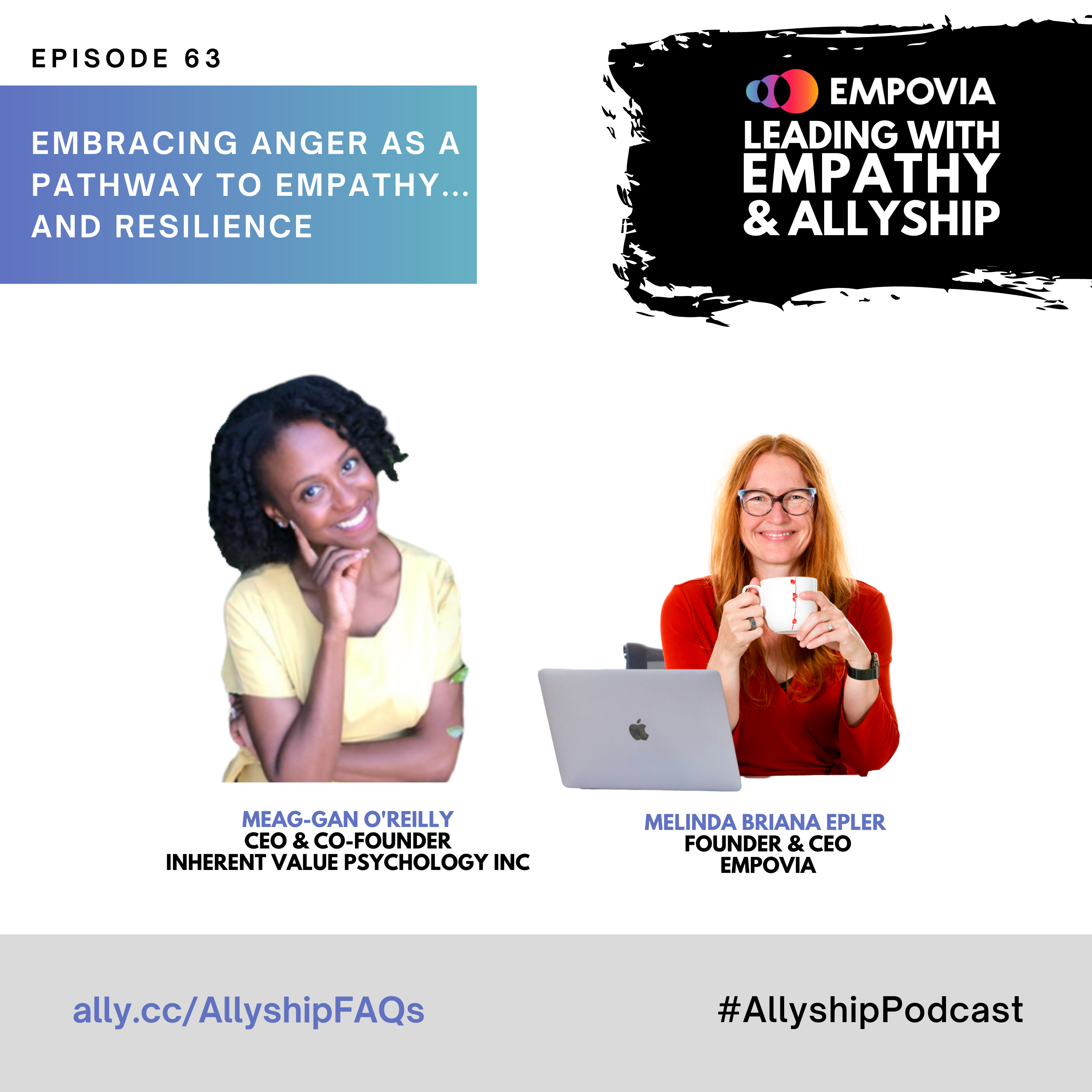
In Episode 63, Meag-gan O’Reilly, CEO & Co-Founder of Inherent Value Psychology INC, joins Melinda in an illuminating conversation about the importance of embracing your anger and how it helps us foster empathy with one another. They also discuss how anger helps us build resilience by allowing us to recognize our own needs and boundaries and how Systems Centered Language can be the first step to dismantling oppression and marginalization.

In this episode, Melinda Briana Epler, Founder & CEO of Change Catalyst and Terri Givens, CEO & Founder of Brighter Higher Ed, discuss how radical empathy can help bridge racial divides. Terri shares her journey researching her family’s history, the need for restorative justice, and what led her to write her latest book, “Radical Empathy: Finding a Path to Bridging Racial Divides.”
You’ll learn how to create change by practicing Terri’s six steps of radical empathy:
- A willingness to be vulnerable
- Becoming grounded in who you are
- Opening yourself to the experiences of others
- Practicing empathy
- Taking action
- Creating change and building trust
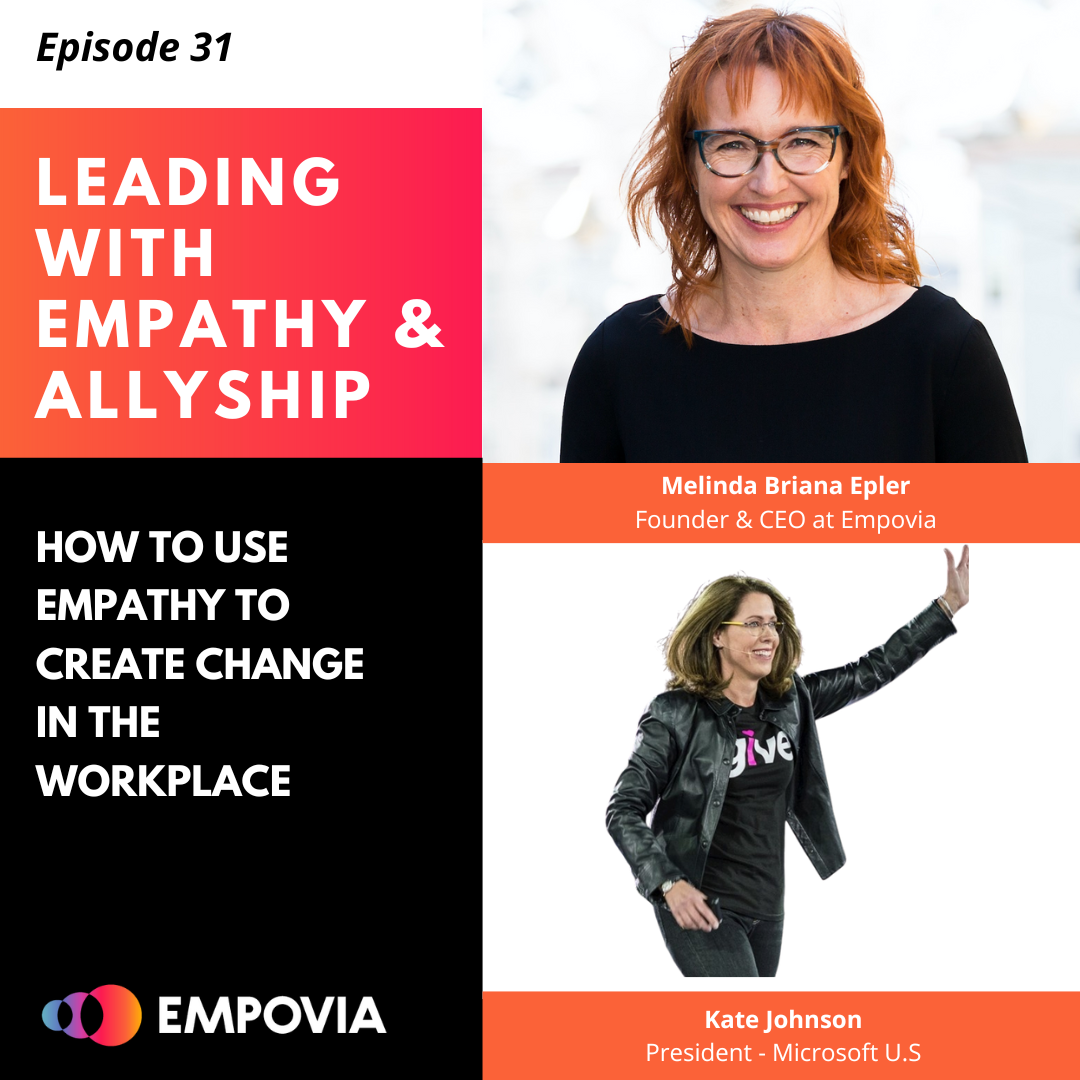
Join Change Catalyst Founder & CEO Melinda Briana Epler with Kate Johnson, President Microsoft U.S, for a deep dive on how Microsoft is creating changes within the company by leading with Empathy.
We talked about:
- Microsoft’s ongoing program to building an inclusive workplace
- Leading with Empathy and how to foster vulnerability and courage
- The need for top-down clarity on the company’s goals, values and outcomes
- The importance of processes and data analytics
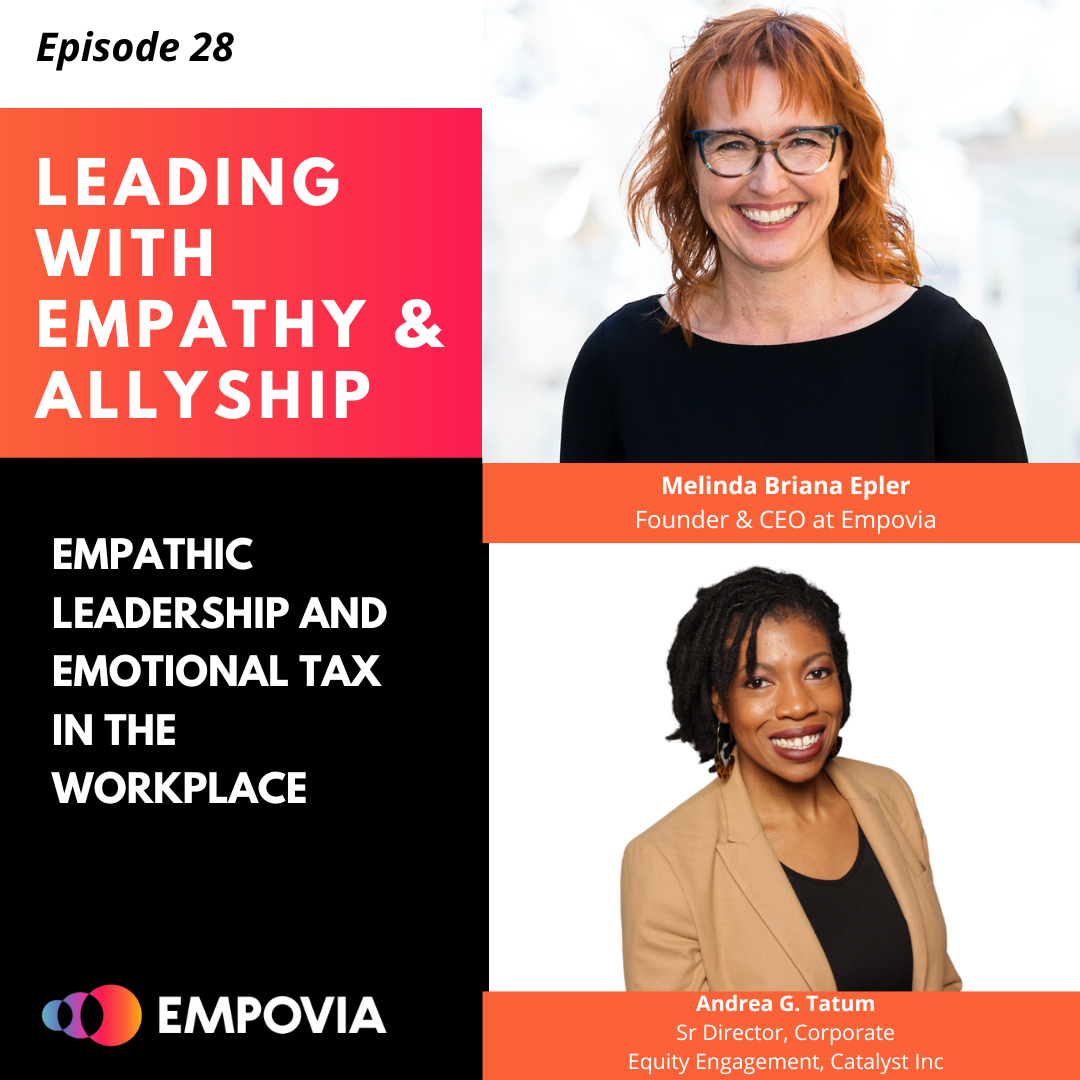
Join Change Catalyst Founder & CEO Melinda Briana Epler with Andrea G. Tatum Senior Director, Corporate Equity Engagement, Catalyst Inc on discussing how to create a supportive working environment.
We discuss the Catalyst’s research and the challenges of the emotional tax for women, particularly women of color: the state of being highly “on guard” at work, which can impact well-being and ability to thrive in the workplace.
In this rich conversation, we learned about:
- Andrea’s personal experience experiencing racism in the workplace and how that led her to become an advocate.
- The role of inclusive leaders to develop workplace cultures where people feel valued and enabled to contribute their skills and expertise fully.
- The powerful change leading with empathy can create in the workplace.
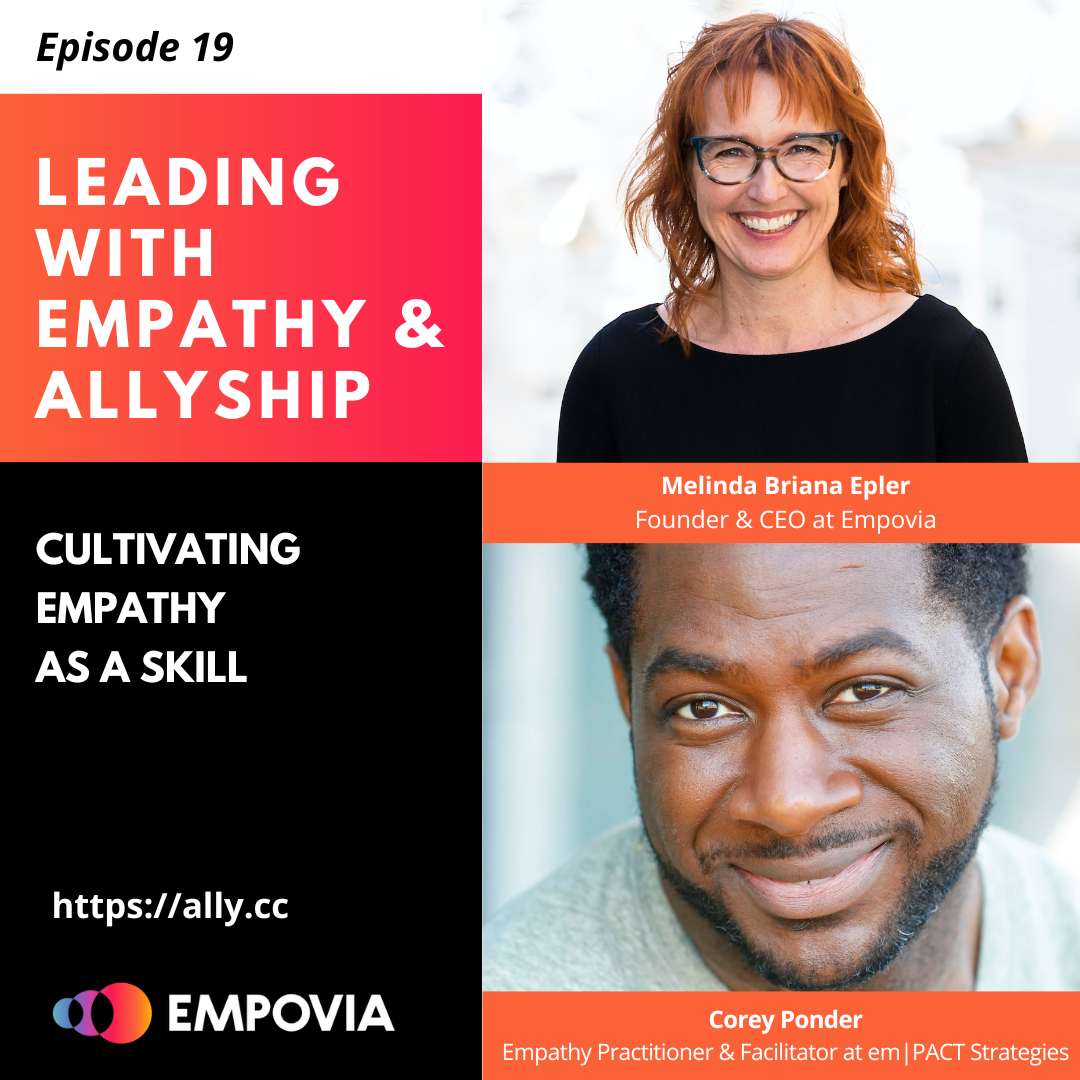
Join Change Catalyst Founder & CEO Melinda Briana Epler with Corey Ponder, Empathy Practitioner & Facilitator at em|PACT Strategies, in conversation about Cultivating Empathy as a Skill.
We talk about Corey’s story, and how he started emPACT Strategies after the deaths of Philando Castile and Alton Sterling. Then we dive into three types of empathy, and ways to build empathy inside organizations by using design thinking frameworks. We talk about allies as being the “trusted sidekick” in a super hero movie, and how to show up as an ally in this crucial moment – to ensure we are moving racial equity forward. And we discuss ways that we can facilitate difficult conversations so that people with widely different backgrounds find common ground to move toward solutions. We end with a conversation with the audience about what barriers they face as allies, and talk through some solutions.
Learn more about Corey’s work at www.empactstrategies.com/
⭑⭑If this is helpful, don’t forget to subscribe to our podcast and like this episode!⭑⭑
